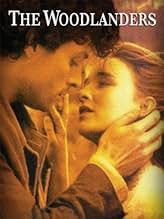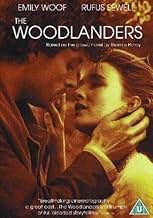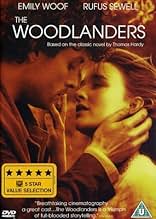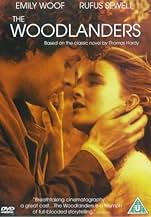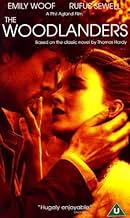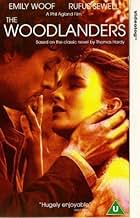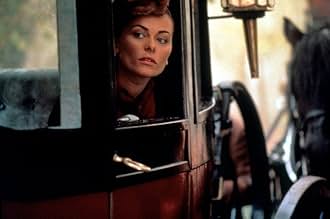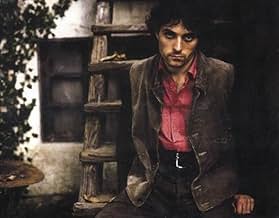Ajouter une intrigue dans votre langueThe story is set in late 19th century rural corner of South England. The daughter of timber merchant Melbury, Grace, returns to the town after finishing school. Her father now believes she c... Tout lireThe story is set in late 19th century rural corner of South England. The daughter of timber merchant Melbury, Grace, returns to the town after finishing school. Her father now believes she can find a better husband than her childhood sweetheart, woodsman Giles. She marries handso... Tout lireThe story is set in late 19th century rural corner of South England. The daughter of timber merchant Melbury, Grace, returns to the town after finishing school. Her father now believes she can find a better husband than her childhood sweetheart, woodsman Giles. She marries handsome young doctor FitzPiers, but soon finds out he's not the man of her dreams and she still... Tout lire
- Réalisation
- Scénario
- Casting principal
- Récompenses
- 3 victoires et 1 nomination au total
Avis à la une
This is also a wonderful discovery for those of us who have come to love movie versions of Thomas Hardy novels (or stories). It tells the story of a young woman who has been sent off to finishing school by her father so that she can rise above the level she has grown up in: the lower- class timber workers of the deep woods in 19th-century rural England.
Though she and a local woodlander had had an agreement to marry when they came of age, her father wants something better for her and encourages her to marry a local doctor who lives and practices in the village. She agrees to marry the doctor, but soon learns that he cannot stand the crude rustic manners of the local people.
This sets up a series of conflicts between her and her father as well as the way she feels about the life she had been raised in and the life that her father wants for her. I love the way the story unfolds as well as the dark (and often wet) sylvan atmosphere that it so capably captures and inhabits.
George Fenton's music score has a lot of beautiful sweep and passion, underlying the tragedy of the story convincingly but not obviously, unsurprising seeing as Fenton's music has always had that effect, while the script is literate and true in spirit to Hardy's prose. The story may lack the depth of the book and the beginning and end have pacing lulls, however it is still told beautifully and compellingly with faultless mood contrasts, and deserves further credit for matching the slow but spacious pacing of the book, handling the romance subtly, the rural if at times gloomy atmosphere it evokes and for how well it makes an effort to convey how the characters would interact, speak and behave. Phil Agland does a solid job directing, really not bad for a feature film debut. Rufus Sewell is a smouldering and affecting Giles, the character we feel the most for. Emily Woof's Gracie is luminous and strong-willed as well as equally touching, it's a different character for her and she acquits herself very well. Cal Macaninch is suitably sly and snobbish, while Polly Walker makes a sinister impact, Jodhi May is a sympathetic Marty South(more so than in the book) and Tony Haygarth makes for a very ideal father-figure, of the firm yet warm and well-intended kind. All in all, falls short but it is well made and earnestly done. 7/10 Bethany Cox
The story is faithful to the book, but omits some of the peripheral details. It's about a young woman who returns to a close knit woodland community after several years away. In that time, she has become an educated lady, and she finds it quite difficult to relate to the people she once grew up with, having experienced wider and more varied cultures. Her childhood sweetheart is a simple woodcutter, and she feels that she is now too "good" for him, so she forsakes her fondness for him and marries a wealthy and educated doctor, with tragic consequences.
The film was filmed in the New Forest (a gorgeous area of England) and it is a visual treat from first frame to last. The scenery is simply ravishing. Furthermore, the performances are very thoughtful and persuasive, complementing the sharp and carefully worked out script. This is definitely one of the best adaptations of a Thomas Hardy novel, and it can stand alongside Polanski's Tess and Schlesinger's Far From the Madding Crowd with its head held high.
Rufus Sewell, in an early role, brings warmth and life to the film as humble woodsman Giles. He's in love with Emily Woof, who ends up betrothed to another man entirely (local doctor Cal Macaninch). Fleshing out the cast are Tony Haygarth (extremely typecast as a gruff but lovable type, but so good at it) and ROME's Polly Walker, vamping it up as the sinister Mrs Charmond.
This adaptation is well shot and, dare I say it, authentic. The main problem is that the cold characters are so hard to like, and that even includes heroine Emily Woof, who doesn't seem to see what's right under her nose. The only appealing character of the bunch is Sewell and he gets only a little screen time. Yes, this production is moving in places and the themes are engaging, so it's not all bad, but I would have preferred something with a little more drama and oomph.
I cannot agree with comments made concerning the scenes dragging or the film itself lacking cinematic scope. Some critics have taken this view but I believe this is rather an indication of how susceptible critics can be to saying what they think people will expect them to say (whilst conveying the distinct impression that they are the most bravely objective critics in the world).
No, this is a film which refuses to go at the pace expected of it but, rather, courageously moves at the precise pace demanded of it by the overall direction and approach. I am glad I haven't read the book because it might have tempted me to try to make a like-for-like comparison and thereby go on to make erroneous deductions.
The two mediums, film and literature, demand different approaches and, to me anyway, this thoughtfully filmed tale is at ease with itself and that is all we can ask of it. It is not trying to be Gone With The Wind or even Pride and Pejudice, nor should it make the attempt.
Like Bleak House, it will completely glide past the attention span of the viewer who is anxious for untimely progression or who is not mentally prepared for its purposely ponderous and understated theme. What I would suggest, most humbly, is that anyone with doubts set aside a whole evening with nothing else planned and no interruptions possible. Then forget anything you have previously experienced concerning this tale and view it afresh. Put away any cynical prejudgement and consciously assume that the film's understated acting is fully intended as such. Then I believe your experience and enjoyment of this film will improve no end.
The director was no doubt under immense pressure to make this tale more paced and juicy. I, for one, fully commend him for resisting this and producing a magnificently restrained U film, a truly English shared countryside, domestic and subtly romantic experience - at least for anyone allowing it the space to embrace them. VNP.
Le saviez-vous
- AnecdotesFinal film of Sheila Burrell .
- Citations
Marty South: Oh, Giles, if only you could tell your heart to be free.
Giles Winterbourne: You can't tell the heart. The heart hopes. Most of all where it's hopeless.
Meilleurs choix
- How long is The Woodlanders?Alimenté par Alexa
Détails
- Durée1 heure 38 minutes
- Mixage
- Rapport de forme
- 2.35 : 1

